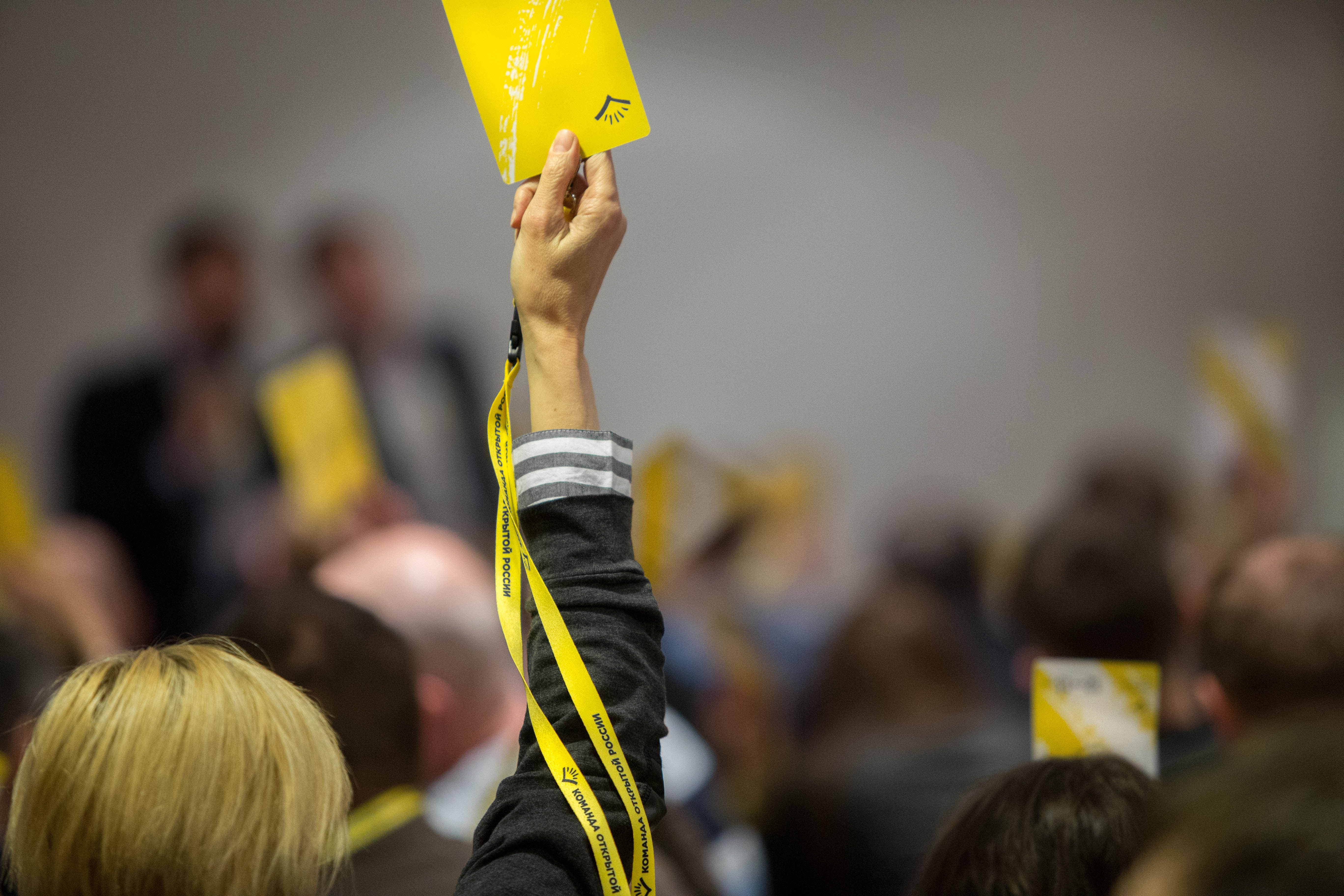Open Russia Action Programme

The Open Russia Action Programme was adopted at the inaugural conference held in Helsinki on 12 November 2016.
OPEN RUSSIA ACTION PROGRAMME
Open Russia won’t waste its energies on attempting to destroy the current regime. The regime will destroy itself. But we know what to do before and after that event occurs.
Before the fall of the regime
The majority of our compatriots are still satisfied with their lives and unwilling to participate in the transformation of the country, but we will form a change team and show people that their lives could be so much better.
We will formulate a detailed plan for the impending changes and get our compatriots involved in an energetic discussion with the help of wiki-technologies.
We will strive to ensure informational transparency (both societal and governmental) by supporting the work of journalists and investigators. We will also explain and unpack global politico-economic issues that ordinary people may find difficult to understand.
We will help social associations to defend their own interests as well as the interests of vulnerable segments of the population in their struggle against state officials and monopolies. We will do so by providing legal and informational support.
We will help new political forces and up-and-coming young politicians to acquire experience of socio-political activism, including electoral experience of all levels.
We will organise non-governmental watchdogs to scrutinise the work and ethics of officials and deputies.
We will support peaceful acts of civil resistance as an effective means of social and political struggle.
We will defend the rights of political prisoners, whose example and courage are integral to awakening social consciousness.
We will develop draft laws intended to protect citizens’ interests and offer them up for public discussion.
After the fall of the regime
When the current president departs the scene, we shall endeavour to ensure that power is transferred to a coalition of socially significant forces; it is this coalition that will form the transitional government.
The transitional government will have two years to implement economic and political changes, enabling the country to emerge from the current crisis and making it possible to hold free and fair elections.
Our programme includes a comprehensive set of measures designed to facilitate an orderly transition from authoritarianism to democracy, and to prevent authoritarianism from rearing its head anew.
Constitutional reform
Separation of powers, checks and balances, regular transfer of power at all levels of government (from federal to municipal). Transition from super-presidential to presidential-parliamentary system of governance. President to be elected for a maximum of two four-year terms. President to be in charge of foreign policy and security; economic matters to be the province of a prime minister and government (appointed by parliament). Work of government to be controlled by parliament with the help of supervisory authorities headed by opposition representatives.
Reform of regional governance
Local authorities to be maximally empowered. All issues resolvable without the involvement of regional and federal levels of government to be resolved locally. Mayors and governors to be chosen via genuine elections. Regional and local parliaments (councils) to play a greater role in the control of regional and municipal governments (administrations) and budgets.
Judicial reform
Creation of an independent judiciary. Reinstatement of judges’ independence. Across-the-board introduction of jury trials for a maximum number of civil, administrative and criminal cases. Zero tolerance towards corruption.
Reform of the political system
Restoration of independent political parties and an independent election commission.
Creation of suitable conditions for competitive election campaigns and fair elections.
Economic reform
De-monopolisation of the economy. Control over natural monopolies to be transferred to public councils overseen by all political forces, oppositionists included. Creation of a transparent legal environment with clear “rules of play” for doing business. All natural-resource rents to be transferred into citizens’ pension and insurance accounts. Re-establishment of international cooperation. Zero tolerance towards corruption.
Law-enforcement reform
Law enforcement agencies to act in accordance with their name. Abolition of the statistics-based “quota system” of performance evaluation. Zero tolerance towards corruption.
Media reform
De-monopolisation of the media. While de-monopolisation is ongoing, media to be transferred into the control of public councils overseen by all political forces, oppositionists included, which will ensure media independence and compliance with the law and journalistic ethics
International relations
Revival of friendly relations with Europe, the US and Ukraine. Initial steps to resolve accumulated problems and conflicts.



